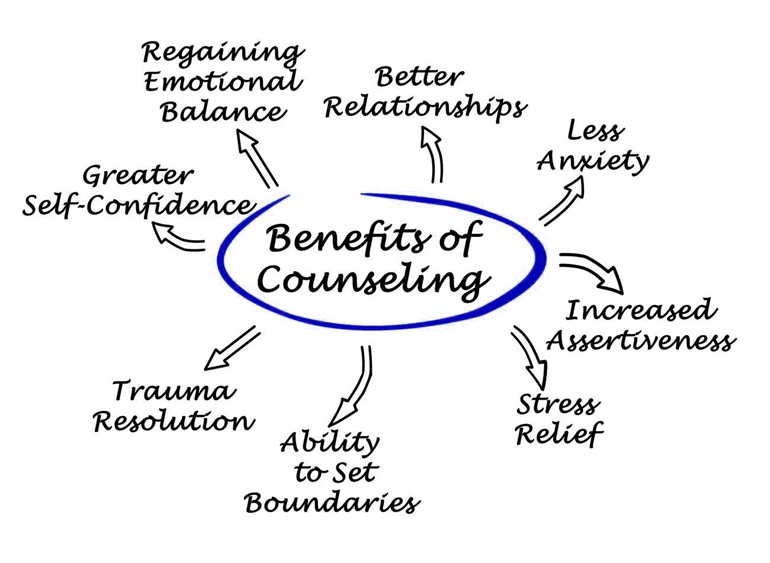Exactly How Mental Treatment for Teenage People Can Foster Emotional Strength
Psychological therapy for young adults works as an essential resource in attending to the unique psychological obstacles they face. It produces a secure room for them to discover their feelings and ideas. Through numerous therapeutic methods, teenagers can create necessary coping strategies. This process not only help in managing stress yet additionally enhances their interaction abilities. As they navigate these formative years, the concern continues to be: exactly how can these skills shape their future interactions and wellness?
Recognizing the Unique Difficulties Facing Teens
Although adolescence is commonly commemorated as a time of growth and exploration, it is also noted by a myriad of distinct obstacles that can greatly influence psychological health. Young adults browse a complex landscape characterized by hormone modifications, peer pressure, and the quest for identification. The pressure to stand out academically and socially often causes increased stress and anxiety and anxiousness. The fast advancement of technology has introduced problems such as cyberbullying and social media comparisons, worsening feelings of inadequacy and isolation.
In addition, family characteristics can change drastically throughout this period, with conflicts emerging as young adults seek freedom. Numerous additionally grapple with societal expectations that can feel frustrating. These consolidated factors create a complex emotional setting, making it necessary to recognize and resolve the particular obstacles teenagers face. Comprehending these struggles is crucial for fostering supportive ambiences that advertise emotional durability and healthy development throughout this pivotal life phase.
The Function of Psychological Therapy in Attending To Psychological Struggles
Mental treatment plays an important duty in aiding young adults navigate their psychological battles, as it offers a risk-free room for them to reveal their feelings and thoughts. Several teenagers encounter challenges such as anxiety, depression, and peer pressure, which can bring about overwhelming emotions. Via treatment, they can verbalize these sensations and begin to comprehend their origins.
Therapists assist in open discussions, enabling teenagers to discover their psychological landscape without judgment. This process fosters self-awareness, permitting them to acknowledge patterns in their behaviors and ideas. Individual Teen Counselling. In addition, mental therapy can assist adolescents develop understanding right into their psychological feedbacks, advertising healthier coping systems
As they obtain a better understanding of their emotions, teens typically discover it less complicated to handle tension and navigate interpersonal partnerships. On the whole, psychological therapy offers as an essential treatment, equipping young adults to resolve their psychological struggles and develop a structure for durability.
Structure Coping Techniques With Restorative Practices
Restorative methods equip young adults with reliable coping strategies to handle their psychological obstacles. Via various techniques, such as cognitive behavioral therapy and mindfulness techniques, teens discover to determine triggers and create individualized responses. These techniques encourage self-awareness, permitting people to identify unfavorable idea patterns and replace them with useful options. Additionally, therapy commonly involves role-playing and situation evaluation, which offer useful frameworks for dealing with real-life circumstances.
Group treatment sessions can further enhance discovering by cultivating peer assistance and shared experiences, strengthening that others face comparable battles. As teens execute these techniques, they build resilience, enabling them to navigate stress factors much more properly. This positive method to psychological health and wellness not only aids in prompt coping but also lays the groundwork for long-term emotional security. Inevitably, equipping young adults with dealing techniques through restorative techniques grows a sense of agency and empowerment in managing their psychological wellness.
Enhancing Communication Abilities and Self-Expression
Reliable communication and self-expression are vital components of emotional well-being for teenagers. Psychological therapy supplies an encouraging setting where teenagers can learn and practice these abilities. Via therapeutic strategies, teens are urged to verbalize their ideas and feelings, fostering a deeper understanding of their feelings. This process advertises active listening, enabling them to engage more successfully with others, thereby boosting interpersonal connections.

Long-Term Advantages of Emotional Durability in Teenage Years
While passing through the obstacles of teenage years, the advancement of psychological resilience can produce substantial long-lasting advantages for young adults. Resistant individuals are better equipped to deal with stress and anxiety, which can lead to improved mental health and wellness outcomes in adulthood. They typically experience reduced rates of anxiousness and anxiety, fostering an extra positive outlook on life.
Furthermore, emotional resilience boosts social partnerships, as these people often tend to connect better and solve problems with higher simplicity. This capability adds to stronger social media networks and support group, which are vital during difficult times.
Additionally, resilient young adults are more likely to embrace obstacles as chances for development, bring about increased academic and specialist success. Eventually, the cultivation of emotional strength throughout teenage years lays a structure for lifelong coping strategies, encouraging individuals to browse future misfortunes with confidence and flexibility.
Frequently Asked Concerns
Just how Do I Know if My Teen Needs Therapy?
Indications a teen might need therapy consist of relentless unhappiness, withdrawal from buddies or tasks, radical adjustments in behavior, decreasing scholastic performance, and difficulty taking care of emotions. Observing these indicators can motivate factor to consider for professional support.

What Sorts of Treatment Are A Lot Of Efficient for Teens?
Cognitive Behavior Therapy (CBT), Dialectical Behavior Modification (DBT), and art or play treatment are among one of the most reliable methods for young adults, assisting them establish dealing abilities, enhance emotional guideline, and reveal themselves in constructive ways.
Exactly How Can Parents Support Their Teenager During Treatment?
Moms and dads can sustain their teenager throughout treatment by proactively listening, confirming their sensations, maintaining open interaction, motivating engagement in sessions, and fostering a risk-free atmosphere where the teenager feels comfortable reviewing their emotions and thoughts.
Exist Any Threats Connected With Teen Therapy?
Yes, risks associated with teenage therapy consist of prospective visit this website psychological pain, miscommunication between specialist and teen, reliance on therapy, or exposure to unsuitable subjects. Additionally, not all therapists may have the needed experience with adolescent problems.
For How Long Does Treatment Typically Last for Young Adults?
Therapy period for teenagers usually varies from a few weeks to numerous months, depending upon private demands, objectives, and the certain concerns being attended to. Individual Counselling Toronto. Procedure usually take place weekly, promoting progressive progression and psychological advancement
Mental therapy for teens serves as an important resource in attending to the one-of-a-kind psychological obstacles they encounter. Psychological therapy plays a crucial function in helping teens browse their emotional battles, as it supplies a risk-free room for them to express their sensations and thoughts. Indicators Go Here a teen may need therapy include consistent despair, withdrawal from activities or buddies, drastic changes in actions, declining scholastic efficiency, and trouble managing emotions. Yes, dangers connected with teenage treatment include possible emotional discomfort, miscommunication between specialist and teenager, dependency on treatment, or exposure to improper subjects. Therapy duration for teens usually ranges from a couple of weeks to a number Recommended Reading of months, depending on individual needs, objectives, and the certain problems being dealt with.